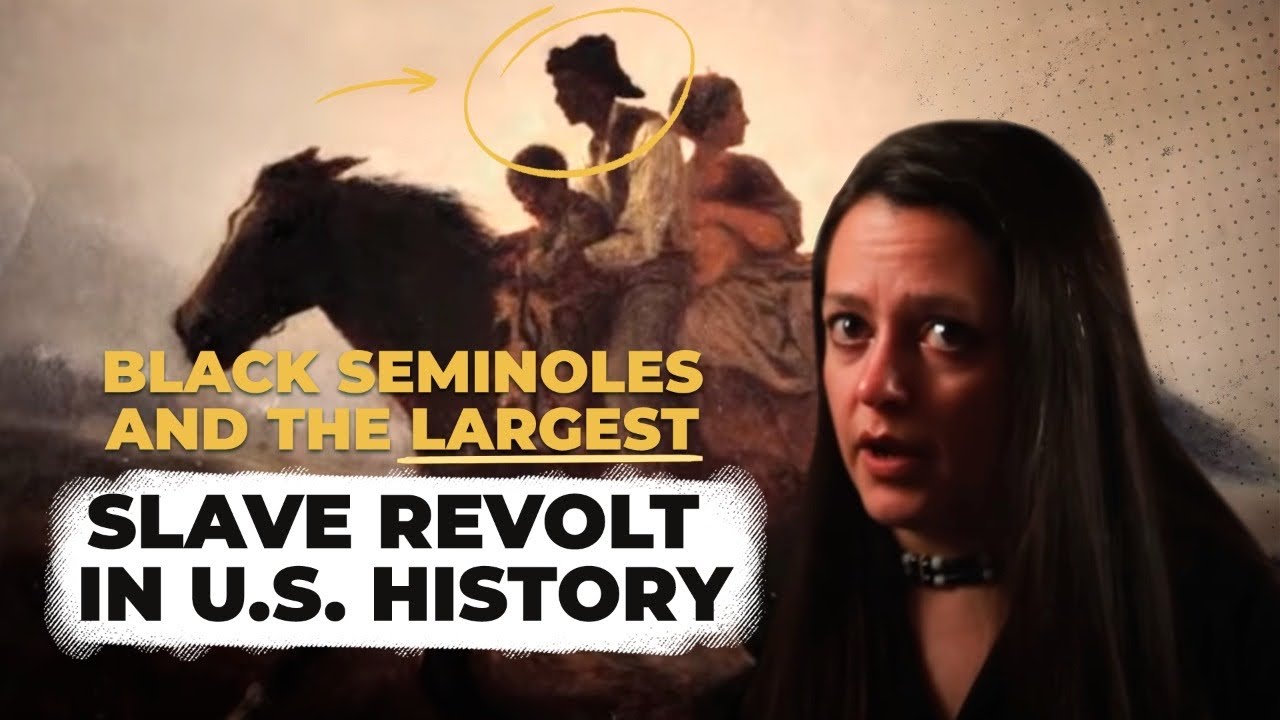Category:History


Don Quixote is First Anti Race-Based Slavery Novel
June 11, 2016 | Post
For almost as long as slavery has existed, there have been books opposing it. Perhaps the first was The Golden Ass, written in the Second Century A.D., whose plot follows a man turned into an ass, who can only turn back into a human when he empathizes with the plight of slaves. Then there is the great […]

Don Quixote: How Don Quixote Protested Slavery in Spain
June 11, 2016 | Video
History of Slavery: Did you know that Don Quixote is the first modern anti-slavery novel? Professor of Literature Eric C. Graf explains why Don Quixote’s author placed so much emphasis on the immoral nature of slavery.

72 Years After D-Day, One Professor Asks What It Would Take for You to Fight for Your Liberty
June 10, 2016 | Post
Seventy-two years ago on June 6, Allied forces stormed the beaches of Normandy to push back the fascist occupiers of Europe. Termed “D-Day,” the operation was the largest seaborne invasion in history. Despite more than 10,000 casualties, the mission was considered a military success. Within a year, Allied forces would reach Berlin, where Hitler had […]

Civil Disobedience: One Lone Man and the Tanks of Tiananmen
June 5, 2016 | Post
On this date, June 5th, 1989. Approximately a decade following the Tiananmen Square massacre I had the pleasure of being invited to dinner by a gentleman who claimed to know a great Chinese restaurant. Over appetizers he popped the question of what it would take for me to accept China. My academic advisor at that […]

The surprising, radical message of Don Quixote
June 4, 2016 | Post
Given the relatively few examples of true liberty from real life, some of the best expressions of liberty have often come from novels. These literary works not only captivate our minds but also inspire us to envision a future where the individual, rather than the government and its agents, holds the reins of human action. […]

How One Image Showed the World What Heroism Really Means
June 3, 2016 | Post
The collective thought it could use military force to conquer individuality. It took unknown individual to prove otherwise.

Atomic Atrocities, Absent Apologies
June 1, 2016 | Post
Seventy-one years after the United States dropped two atomic bombs on Japan, killing about 140,000 people and ending World War II, Barack Obama last week became the first sitting American president to visit Hiroshima, to commemorate what everyone (regardless of whether he or she thinks it was justified) can agree was a devastating tragedy. And […]

The Tax Code Is Designed to Penalize Working Women
May 22, 2016 | Post
Editor’s Note: This is part two in a two part series from Sarah Skwire on women and liberty. You can read part one here. The Tax Code Is Designed to Penalize Working Women Shortly after writing a check to the IRS, I got an $800 bill from my accountant for her work preparing my taxes, […]

How Capitalism Made Modern Motherhood
May 8, 2016 | Post
Note: This piece is dedicated to my mom, as I celebrate my first Mother’s Day without her. With Mother’s Day upon us, it’s worth taking a moment to consider the vision of motherhood that we normally celebrate on this day. The holiday’s origins, interestingly enough, come from celebrations of the role of mothers in the […]

What J.K. Rowling Does And Doesn't Do for Native Americans
April 29, 2016 | Post
The ControversyIn preparation for the November 2016 release of her upcoming film, Fantastic Beasts and Where to Find Them (which is set in 1920s New York City and features MACUSA, the Magical Congress of the United States of America), J.K. Rowling has shifted her focus from Harry Potter’s Great Britain to North America. Last month […]

This Year’s Passover Is an Especially Good Time to Celebrate Freedom from Slavery
April 27, 2016 | Post
This week marks the Jewish holiday of Passover, which, at least in part, celebrates freedom from slavery. As we observe it, let’s not forget those who fought for freedom in our own country. For instance, this year’s Passover follows last week’s announcement from the U.S. Treasury that abolitionist Harriet Tubman will be featured on the […]

How the 1961 Bay of Pigs Invasion Can Help Us Understand the 2015 Paris Terror Attacks
April 17, 2016 | Post
Today is the 55th anniversary of the disastrous 1961 Bay of Pigs invasion, which consisted of a “secret” U.S.-sponsored military operation intended to overthrow the government of Cuban leader Fidel Castro. The invasion failed miserably and was defeated in just three days. What it succeeded in doing was strengthening Cuba’s leadership and its ties with […]

Star Wars Conspiracy: Does Fear Cost Us Our Liberty?
December 17, 2015 | Video
Star Wars Conspiracy: Does Star War give us insight that fear can actually cost us our liberty in times of crisis? What is your opinion? Let us know if the comment section below.

Star Wars Conspiracy – Is Star Wars About The Holocaust?
December 17, 2015 | Video
Is there a resemblance between the Darth Sidious Dictatorship and Adolf Hitler’s? Take a look at how the past can quickly repeat itself if we don’t stand up to the Dark Side.

War Sucks, What is it Good For?
December 10, 2015 | Video
War Sucks, What is it Good For? Creating peace, spreading democracy, boosting the economy? Here’s the answer: nothing. Our natural inclination is to think about war in the abstract. And while there may be good reasons to go to war, those reasons are few and far between. The moral case for war requires much more […]

Warsaw’s Blinking Lights
February 3, 2015 | Video
In the 1980s, an oppressive communist regime suppressed free speech, dissent, and messages of freedom in Poland. In resistance, Radio Free Poland was born: a hidden radio station which broadcast messages of freedom to the people of Warsaw. Professor Peter Jaworski and his family, who lived in Poland during this time, share their personal stories of […]
Is Katniss a Modern-Day Spartacus?
December 13, 2013 | Video
Literature and legend often reflect their culture. Some themes, like that of rulers imposing coercive power, or of individuals rising up against tyrants, are as relevant today as they were in antiquity. Suzanne Collins drew on Greek mythology’s story of the Minotaur and on the legend of Spartacus in ancient Rome as she created the Hunger […]

When Should the U.S. Invade Other Countries?
September 16, 2013 | Video
In this debate, Jan Ting, professor of law at Temple University, and Bryan Caplan, professor of economics at George Mason University, discuss whether war is ever justified. Prof. Ting argues that while war should be a last resort, there are occasions where the consequences of not going to war outweigh the costs of war. He […]

Debate: Is War Ever Justified?
June 6, 2013 | Video
In this debate, Jan Ting, professor of law at Temple University, and Bryan Caplan, professor of economics at George Mason University, discuss whether war is ever justified. Prof. Ting argues that while war should be a last resort, there are occasions where the consequences of not going to war outweigh the costs of war. He […]

Debate: Does a Stronger Military Make Us Safer?
June 6, 2013 | Video
In this debate, Jan Ting, professor of law at Temple University, and Bryan Caplan, professor of economics at George Mason University, discuss whether war is ever justified. Prof. Ting argues that while war should be a last resort, there are occasions where the consequences of not going to war outweigh the costs of war. He […]

The Expulsion of the Acadians
May 26, 2012 | Video
The sad history of state-sponsored ethnic cleansing in North America begins with the story of the 18th century expulsion of the Acadians by the British. Professor Amy Sturgis explains that the Acadians were peaceful French colonists who had prospered in Nova Scotia. In 1755, the British forcibly uprooted the Acadians from their land and scattered […]

Protest against the Trail of Tears
April 16, 2012 | Video
The U.S. government’s forced removal of the Cherokee Nation from Georgia to modern-day Oklahoma has become known as the Trail of Tears. The event is a blemish on U.S. history. Professor Amy Sturgis reads an extended excerpt from a letter by Ralph Waldo Emerson, who wrote President Martin Van Buren to protest the injustice of […]

The Trail of Tears: They Knew It Was Wrong
April 2, 2012 | Video
The Trail of Tears shouldn’t have happened. People at the time knew that it was wrong, that it was illegal, and that it was unconstitutional, but they did it anyway. Historian Amy Sturgis explains why the forced removal of the Cherokee Nation to “Indian Territory” (modern-day Oklahoma) was wrong on both moral and legal grounds. […]

Forgotten Rebellion: Black Seminoles and the Largest Slave Revolt in U.S. History
March 23, 2012 | Video
Historian Amy Sturgis recounts history that seems made for the movies but hasn’t made it to the big screen. It’s a decades-long story of oppression and freedom fighting. Why hasn’t there been more attention paid to John Horse and the Black Seminoles? Prof. Sturgis argues that John Horse and the Black Seminoles deserve to be […]

